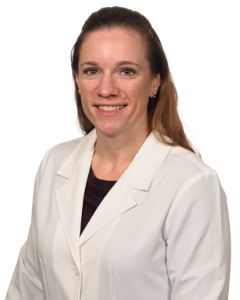PGY-2 Pediatric Pharmacy Residency - Orlando Health Arnold Palmer Hospital/Orlando Health Winnie Palmer Hospital
The PGY-2 Pediatric Pharmacy Residency at Orlando Health Arnold Palmer Hospital for Children (OHAPH) is a one-year, post-graduate training program designed to develop essential knowledge and skills for contemporary health-system pharmacy practice. The residency program provides flexibility to adapt to the resident’s specific learning needs and goals. Training is provided through rotational experience and longitudinal activities.
Graduates of the OHAPH PGY-2 Pediatric Pharmacy Residency will be competent and confident practitioners of pharmaceutical care in multiple pediatric patient care environments, assuring safe, effective, and appropriate drug therapy.
All clinical rotations will be conducted at Orlando Health Arnold Palmer Hospital for Children (OHAPH) and Orlando Health Winnie Palmer Hospital for Women & Babies (OHWPH).
PGY-2 Program Purpose
PGY-2 pharmacy residency programs build on Doctor of Pharmacy (PharmD) education and PGY-1 pharmacy residency programs to contribute to the development of clinical pharmacists in specialized areas of practice. PGY-2 residencies provide residents with opportunities to function independently as practitioners by conceptualizing and integrating accumulated experience and knowledge and incorporating both into the provision of patient care or other advanced practice settings. Residents who successfully complete an accredited PGY-2 pharmacy residency are prepared for advanced patient care, academic, or other specialized positions, along with board certification.
Goals of the Residency
Graduating PGY-2 Pediatric Pharmacy Residents will:
- Assure safe, effective, appropriate drug therapy and prevent, identify, and resolve drug related problems
- Present as a competent, confident, and compassionate practitioner and set and reassess goals
- Demonstrate a commitment to the advancement of the profession and continued personal growth
- Possess comprehensive health-system pharmacy skills that promote future professional growth
- Create, promote, and participate as a part of a multidisciplinary healthcare team
- Demonstrate the ability to identify opportunities for improvement within a practice and practice site
- Provide education to professional and non-professional audiences, utilizing effective communication skills
- Demonstrate a foundation of leadership skills in pharmacy practice
Residency Director
Robyn Keen, PharmD, BCPS, BCPPS
Director, PGY-2 Pediatric Pharmacy Residency
Clinical Pharmacist, Pediatric Cardiac Critical Care
Orlando Health Arnold Palmer Hospital for Children

|
Education: Pharm.D., University of Georgia College of Pharmacy, Athens, GA (2009) Training: PGY-1 Pharmacy Practice Residency (2009-2010) & PGY-2 Pediatrics Specialty Residency (2010-2011), Shands at the University of Florida, Gainesville, FL Interest Areas: Congenital Heart Disease, Pediatric Anticoagulation, Medication Safety Email: [email protected] |
Required and Elective Rotations
|
Required Rotations |
Elective Rotations |
|
|
Additional Longitudinal Activities
- Professional Enhancement (12 months)
- Complete a medication use evaluation and a medication use guideline
- Write a drug monograph
- Fall Research Project (12 months)
- Design and conduct a project to develop or enhance an aspect of pharmacy operations or patient care specific to pediatric patients
- Present the results at the Florida Residency Conference or Pediatric Pharmacy Association (PPA) Spring Meeting
- Prepare a manuscript suitable for publication
- Spring Research Project (6 months)
- Design and initiate a new research project in using the flipped research model, including IRB submission and development of a data collection form to be carried forward by the incoming resident
- Residency Seminar (4 months)
- Present a 1-hour ACPE-accredited CE presentation
- Presentation Requirements
- Formal patient case presentations at Pharmacy Grand Rounds (4 months)
- Journal Clubs (6 weeks)
- Pediatric Emergency Response Coverage (12 months)
- The pediatric pharmacy residents will receive Pediatric Advanced Life Support (PALS) training and spend approximately 2 weeks per month (Monday – Friday) on “Emergency Response Coverage” from 7:30am - 3:30pm
- Pediatric Ambulatory Care Experience (12 months)
- The pediatric pharmacy residents will spend one afternoon every other week in the Pediatric Infectious Disease Clinic with responsibilities such as medication counseling, drug information questions, pharmacologic interventions and beta-lactam allergy delabeling interviews
Weekend Experiences (12 months)
Pharmacy Operations
- The pediatric pharmacy resident will staff approximately every third weekend per month (8-hour shift on Saturday and Sunday).
- Responsibilities:
- Processing medication orders
- Working in the IV room
- Responding to drug information questions from pharmacists and other healthcare providers
- Reviewing pharmacy consults
Program Specifics
|
ASHP Residency Directory Information |
Residency Program Benefits |
|
|
|
Additional Residency Program Benefits |
|
|
|
|
Orlando Health Pharmacy Residency Basics
|
PGY-2 Pediatric Pharmacy Residency Preceptors
- Sindhuri Avula, PharmD, Neonatal Intensive Care Unit
- Kaitlyn Cabrera, PharmD, Neonatal Intensive Care Unit
- Mallory Cowart, PharmD, MBA, BCPPS, Pharmacy Practice Management
- Robyn Keen, PharmD, BCPS, BCPPS, Pediatric Cardiac Critical Care
- Taylor Lee, PharmD, BCPPS, Pharmacy Practice Management
- Susan Norman, PharmD, BCPS, BCPPS, Pediatric Clinical Pharmacist
- Amanda Montanez, PharmD, BCPS, Women's Services
- Christina Salathe, PharmD, BCPPS, General Pediatrics
- Samantha Spishock, PharmD, BCPPS, Pediatric Hematology/Oncology
- Jennifer Vazquez Perez, PharmD, BCPPS, Pediatric Critical Care
- Alyson Vezina, PharmD, Pediatric Bone Marrow Transplant


